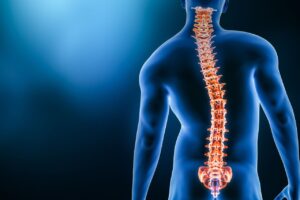Ayurveda, the ancient Indian system of medicine, offers a holistic approach to managing scoliosis. Despite not providing a direct cure for scoliosis, Ayurveda concentrates on promoting overall health and well-being. Here are some ways Ayurveda can aid in the management of scoliosis:
Ayurvedic treatments:
Employing Ayurvedic therapies such as Abhyanga (oil massage) can alleviate muscle tension, reduce pain, and enhance flexibility. Additionally, Pinda Sweda (herbal bolus massage) and Kati Basti (medicated oil treatment for the lower back) may be beneficial in addressing specific symptoms.
Panchakarma:
As a detoxification and rejuvenation therapy in Ayurveda, Panchakarma aims to balance the doshas (energetic forces) and eliminate toxins from the body. Ayurvedic practitioners may recommend Panchakarma treatments like Virechana (purgation) or Basti (medicated enemas) to support overall health.
Herbal medicines:
Prescribing Ayurvedic herbs and formulations to manage pain, inflammation, and improve joint and muscle health is a common practice. These may include herbs like Shallaki (Boswellia serrata), Guggulu (Commiphora mukul), and Ashwagandha (Withania somnifera).
Lifestyle modifications:
Ayurveda underscores the importance of adopting a balanced lifestyle, incorporating elements such as maintaining a proper diet, engaging in regular exercise, and ensuring adequate rest. This holistic approach supports overall well-being and helps manage fatigue and anxiety associated with scoliosis.
Mind-body practices:
Recognizing the mind-body connection, Ayurveda suggests incorporating practices like yoga, pranayama (breathing exercises), and meditation. These practices can effectively manage stress, improve posture, and promote relaxation in individuals dealing with scoliosis.
